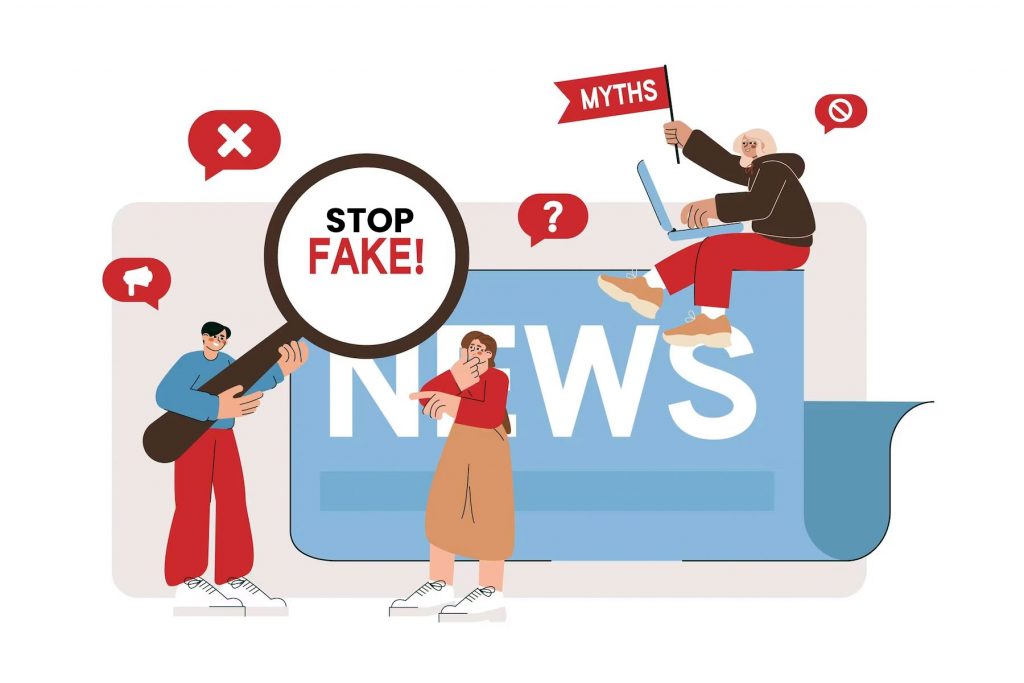
An article by Philip Aluola
Nigeria is currently dealing with a significant issue as its society is on the verge of disintegrating due to the spread of misleading information and the development of bad news sources. Platforms that were previously meant to spread accurate, unbiased information that may help develop nations have evolved into hotbeds of instability, conflict, and social unrest.
Citizens long for peace and moral structures from various actors responsible for the harnessing of such destructive forms of news but little can be done when the elites themselves are driven by hedonistic goals, diverting their attention from the only path that can make Nigeria strong again as the nation it was meant to be, a country that can empower women, youths, and give the unemployed a place to work.
The Use of Misinformation as a Weapon:
Misinformation has developed into a potent tool used by a variety of groups looking to stir up trouble, further their own objectives, or sway public opinion. This pandemic has impacted every aspect of Nigerian society, including politics, religion, health, and social problems. Misinformation has serious and far-reaching effects that frequently result in a breakdown of trust, a rise in polarization, and even violent acts. The previous election is a prime illustration of this writeup, as a variety of news organizations, sources, and stories flooded the internet without adequate proof to determine which information was true or false. Additionally, different candidate’s vote totals were widely dispersed online, leading to confusion, conflict, and doubt rather than unity.
The Blogosphere’s Function and decline of moral journalism
The blogosphere is one of the primary perpetrators in the dissemination of misleading information. There is a cost associated with the democratization of information, which is made possible by the rise of citizen journalism and online platforms. Numerous blogs lack editorial oversight, fact-checking processes, or moral guidelines. As a result, sensationalized tales and misleading narratives pervade the public sphere, distorting reality and hurting Nigerian society as a whole.
Even reputable news outlets have fallen prey to sensationalism’s attraction. In their persistent quest of viewers and advertising income, certain media outlets place a higher value on content that is divisive and click-bait headlines than accurate reporting. In addition to undermining the critical function of journalism in a democracy, this trend toward sensationalism also encourages the spread of false information. Social media sites like Twitter, Instagram, and Facebook serve as breeding grounds for what one might term false news because no one can actually fact-check their existence.
The Nigerian media crisis has had disastrous results. Conflicts between ethnic and religious groups have been sparked by rumors and falsehoods that have heightened already existing tensions between them. Through blogs and news websites, hate speech and inflammatory reporting have stoked violence, leading to fatalities, property destruction, and mass evictions. Misinformation has also slowed down the nation’s development by distorting public discourse, preventing the implementation of policies, and damaging social cohesiveness.
How to Achieve Peace:
Peace emerges as the only realistic future for individuals seeking stability in the midst of misinformation and unrest. To create peace, all parties involved—the government, the media, civil society, and individual citizens—must cooperate. Given the damage that false information can do, media literacy and critical thinking instruction in schools have to be given top priority. The nation can be defended against the onslaught of misleading information by arming citizens with the knowledge to identify fact from fiction.
Media accountability and responsibility
Media organizations must reconfirm their dedication to moral reporting and ethical journalism. The implementation of fact-checking procedures, editorial control, and adherence to professional standards are essential to regaining credibility and public trust. News organizations may recover their position as pillars of democracy, encouraging informed public conversation and building a sense of national togetherness, by holding themselves accountable and ensuring accuracy in reporting.
Regulation and Freedom of the Press:
While preserving the right to free expression, government regulation can have a substantial impact on reducing the dissemination of misleading information. Adopting legislation that makes it illegal to deliberately spread false information and hate speech can act as a deterrent. But it’s crucial to strike a fine balance between avoiding misleading information and protecting the tenets of a free press. Any regulation must advance the public interest overall and be open, egalitarian, and transparent.
The Role of Individuals:
Nigeria’s citizens are ultimately responsible for maintaining peace in the country. False information can be suppressed and have less of an impact if people reject it and choose not to interact with it. In order to close the gaps left by inaccurate information and promote a feeling of communal cohesion and shared purpose, it is important to cultivate constructive dialogue, empathy, and understanding. I think Nigerians are capable of laying the groundwork for a brighter and more united future.
Nigeria can regain its rightful place as a beacon of peace and growth on the African continent with the help of the country’s citizens, credible media, and a government committed to upholding the truth. As someone in the entertainment industry, I have detailed this episodes in songs like Below Peace and You To The Rescue, where I called out disgruntled citizens and used education as a way forward and the resilience of the oppressed.